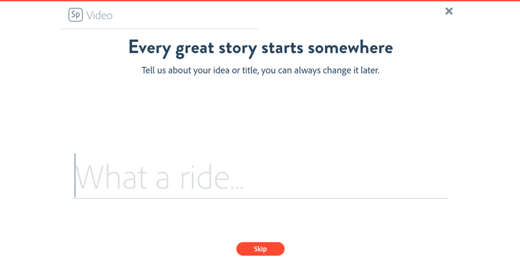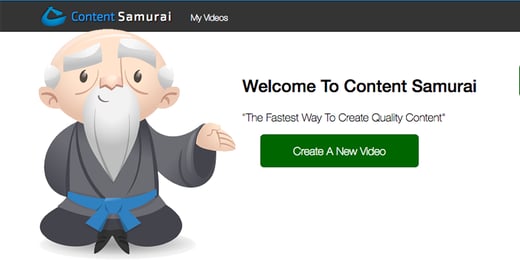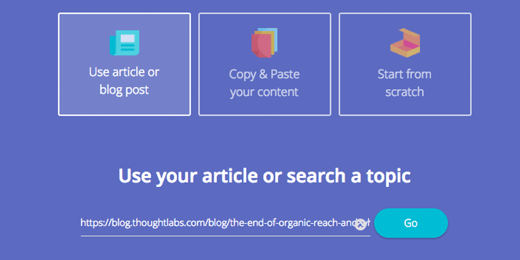Here at Thought Labs we're looking forward to all that 2013 has in store for us, and to celebrate the start of this new year, we're bringing together 5 of the most useful blog posts we wrote in 2012!
Here you'll find a quick few lines that summarize the purpose of each post, along with the key points taken from each. Each post's title is also a link if you'd like to quickly delve deeper into any of these subjects. These posts span multiple topics, all the way from high-level strategy discussions to very specific insights on campaign metrics.
Happy New Year from the Thought Labs team! Here's some timeless information from 2012 to help you start 2013 off right!
Why Are You On Facebook? -by Zachary Chastain
Before you discuss job roles and responsibilities, strategy and tactics, or planning your social media program, you should first identify which platform (if any) makes the most sense for you and your business.
The key takeaways from this post were:
- Should your business be using social media at all? Setting up a profile may be free, but using social media effectively is not. It requires an investment of time and often money as well. If you're going to setup a profile, but you have nothing valuable to say or don't have the time to say it, now is not the time for you to jump into social. You may hear a lot about how your business just has to be on Facebook, but a neglected Facebook page looks much worse than having no page at all.
- If you have the available time and resources to start an effective social media program, now you need to understand where your customer base and the potential customers you want to reach are at. Facebook may be one of the largest social networks in the world, but that doesn't necessarily mean the people you want to reach are there, or if they are that it's where they're most active. Do your homework to understand if Facebook is the right platform for your brand, or if you would be better off establishing a presence on another social channel.
- If you do setup a Facebook page for your business, it's important that you fill out your page with all of the appropriate information. You also must maintain a consistent level of activity by posting interesting content and responding to fan's questions, comments, and complaints. One of the first things you'll want to do is create a content plan. It can be as simple as a weekly plan which dictates what topics you will post about each day of the week, to be as complex as a yearly calendar with monthly themes and weekly focuses and campaigns. Having any sort of content plan will make posting each day easier to do.
- You must plan ahead and have goals. Being on social media for the sake of it, or because your competitors are, is not enough. What business goals do you intend to achieve using social media, what tactics will you use to reach those goals, and how will you measure your progress to understand if you are succeeding or failing? These are issues you should address before you setup any profiles.
5 Steps for Bolstering Your Brand's Blog Content -by Zachary Chastain
It's fairly easy to start blogging, just start writing. It's another topic entirely to blog effectively. These tips are for brands that want to take their corporate blogs from "actively posting" to beloved by a devoted following. These tips work just as well for an independent blog.
The key takeaways from this post were:
- Share valuable information. Don't let your blog become a place to curate press releases and product specifications. If you want to build a following that will talk about and share your content, that content needs to be useful to your audience. Your goal isn't to directly drive sales, but rather to establish yourself as an expert in your industry. This may not directly drive sales at first, but being known as the place to go for your product or service will make the choice obvious for any potential customers who compare you with your competition.
- Be consistent. How often you blog will depend on a lot of factors, but what's most important is that once you decide on a schedule, that you commit and stick to it. Your readers will come to expect new posts in whatever regular interval you have established, do your best not to disappoint them or let them lose interest due to inactivity. This can be made easier by creating a content plan describing what topics you want to write about and how often. If you're short on time, writing something short, but useful, is better than writing nothing at all.
- Write for your audience, not for your brand. You want to show that you're the expert, that you are the obvious choice above your competition. However, keep in mind that the way to do that is by not focusing on yourself, but on your audience. Write less about how awesome you are, and more about your customer's pain points and how they can fix them. Think of topics that will interest your customers, and more importantly, that will be useful to them. You want to write something that will improve their lives and the way they do business, this establishes immediate credibility for you and your brand.
- Be concise. You'll notice that my key points are bullet points, and that the most important information in each of these bullets is bold. It's great if your audience is willing to sift through pages of words to find your key points, but you're more likely to reach readers and provide more valuable information if you make your posts easy to scan through and highlight any key information. The quality of your writing is not judged on the quantity of your words. If you can say more with less, you're doing it right!
- Make content actionable! If you want your writing to improve your reader's lives, you're going to have to make it easy for them to take your thoughts and ideas and turn them into actions that will get them results. You won't have much of an impact if your great suggestions are never put into practice. Break complex ideas down into simple actions and take your readers through it step-by-step.
- Generally, advocates are born, not created. Your advocates are already out there. You just need to find them and activate them by bringing them into a structured program that provides advocates with resources, support, and direction. Many advocates working together to help your brand reach its business goals is much more powerful than Steve telling 3 of his friends that your company makes the best widgets he's ever used. Don't leave your advocates out in the cold to function on their own, find them and give them a collective purpose that helps you reach a goal.
- Advocates will all have different motivations. Most commonly advocates will be motivated by positive experiences with a product or service, the opportunity for tangible rewards and incentives, or recognition for their hard work. When mobilizing your advocates to achieve a goal, it's important to take social capital into account. To put it simply, the more you ask of your advocates, the more you should offer in terms of incentives and rewards for their assistance. Just as personal relationships are strongest when there is a healthy balance of give and take, so is your relationship with your advocates.
- Advocates provide all sorts of benefits to your organization. Whatever your goals are, remember to keep tasks (and their difficulty) in line with the abilities and level of dedication of the advocate you're assigning the task. It's important that you understand the strengths and weaknesses of your advocates, and that you find ways to include each of them that play to their strengths. This will get you the best results from all of your advocates.
- Most importantly, a proper advocacy program requires being genuine. This isn't all about you, and it's not all about them, it should be a symbiotic and trusting relationship. Don't ask advocates for feedback on products and services if your organization isn't likely to listen to it and potentially act on it. Don't ask them to create content if you can't get approval from legal to share it on the company's blogs and social channels. Don't expect them to provide support to your fans if they have no basic instructions or resources to facilitate it. Don't promise your advocates more than you can really deliver, or you could lose their trust, and that is the opposite of advocacy.
- Have real conversations with your fans. A one way conversation is not social. Fans can tell the difference between brands who post content and never look at that post again and brands who actively engage with them on that content, discussing it, getting feedback, or even just saying "hi." If you expect your fans to care about what you have to say, you'll have to also show that you care about what they have to say.
- The importance of conversations are lost on many brands, and some professionals balk at the suggestion that conversations are important, or are helping you reach a business goal. While it may be true that conversing with your fans won't usually achieve a business goal directly, the indirect benefits are incredibly important. Most brands, for better or worse, use campaigns and promotions to drive their fans down the sales funnel and produce tangible ROI for their organizations. Depending upon how well planned and executed these campaigns are, the results can be incredible or incredibly disastrous. However, one thing is certain, the success of these campaigns requires that the campaign content be seen. The more often your fans interact with your brand, the more heavily EdgeRank will weight your posts in their newsfeeds, it's a free boost to your organic reach! You can also identify brand advocates in conversations on your Facebook page. Thought they may not always be direct, the benefits to brands who make an effort to be more social are numerous!
- Your fans will appreciate your interest in what they have to say. Appreciation may not always contribute to ROI or achieving a goal, but it will make you feel good, and it will make your fans feel good as well. It's a powerful emotion that, over time, can be important to improving overall sentiment towards your brand, both among those who already support and love you, and those who came to you with a problem they need fixed or just to vent about a bad experience. Being genuinely social can do wonders for improving brand sentiment and loyalty.
- Ad campaigns are a common tactic to help organizations reach their goals or drive fans and followers down the sales funnel. While it's great to understand how many fans were directed to the latest Facebook promotion, it's also important to understand how too many campaigns, or the wrong type of campaigns can hurt your community over time, and eventually begin to hurt the effectiveness of your future campaigns.
- Fans don't come to Facebook for advertisements. They are there to keep in touch with friends, get the latest news, or to read interesting and useful content from their favorite brands. If your content is too sales focused for too long, your fans will start to hide posts that don't interest them, choose to hide all updates from your page, or simply unlike your page altogether. Each time this happens, your ability to reach those fans through future campaigns is lessened or completely lost.
- You must measure key churn metrics (identified in the post) in order to understand which campaign content is resonating well with your fans, and even more importantly, which content is turning them off and causing them to desert your page.
- Once you've analyzed the information you've gleaned from these metrics, have formed hypotheses about which campaign content your fans appreciate, which they can't stand, and in what quantities they can tolerate campaign content before it becomes too much, you should formulate experiments to test these theories and measure the results to see if you can successfully decrease campaign churn.
- If you see no changes it's time to take another look at the data to understand what you may have missed, however, if you've successfully decreased churn then you now have valuable insights that will help you to not only improve the effectiveness of your future campaigns and the value they may provide to your fans, but also help you run sustainable campaigns that don't cause your page to hemorrhage fans or your ability to reach your fans.
Jan 6, 2013







